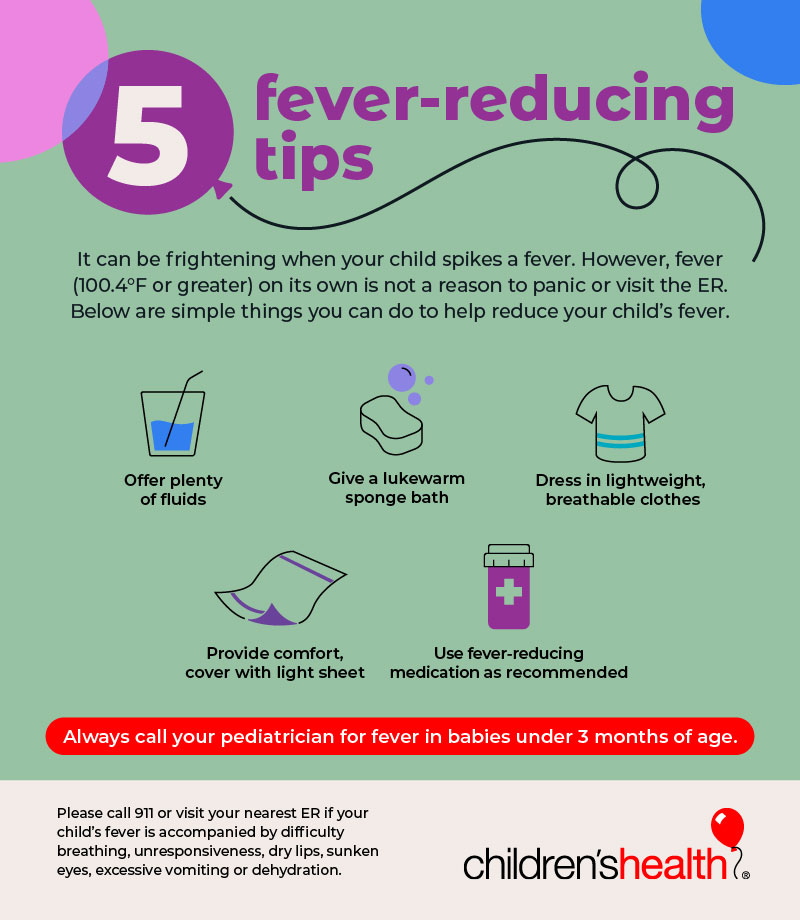Last Updated on 1 year by Francis
A fever is an indicator of an underlying disorder or infection. While it is often a natural response of the body to fight off an illness, it can be uncomfortable and even dangerous if it gets too high. Fortunately, there are a number of ways to reduce a fever and keep it under control. In this article, we’ll discuss what the best way to reduce a fever is and how you can use it to help your body fight off the underlying infection.

Contents
How to Reduce a Fever Naturally
Many people turn to medications to reduce their fever, but there are a number of natural ways to reduce a fever, too. These methods are especially important for young children, pregnant women, and those with existing medical conditions who should not take medication to reduce their fever. Here are some of the best ways to reduce a fever naturally.
The first step in reducing a fever naturally is to make sure the patient stays cool and comfortable. This can be done by dressing the patient in light clothing and keeping the room temperature cool. If necessary, the patient can take a lukewarm bath or shower to help bring the fever down.
It is also important to keep the patient hydrated by giving them plenty of fluids. This will help flush out the toxins that are causing the fever and help the body naturally cool itself. Water, sports drinks, and other fluids are all good options. It is also important to avoid caffeinated drinks, alcohol, and sugary drinks, as these can actually make the fever worse.
Take Fever Reducing Foods
Eating certain foods can also help reduce a fever. Foods that are rich in antioxidants, such as citrus fruits, can help reduce inflammation and help the body fight off infection. Eating foods that are high in vitamin C, such as oranges and strawberries, can also help reduce a fever. Other foods that can help reduce a fever include yogurt, oatmeal, and garlic.
It is also important to avoid spicy and fatty foods, as these can worsen the inflammation and make the fever worse. Eating smaller, more frequent meals can also help reduce the fever, as can avoiding large meals that can be difficult to digest.
Herbal Remedies for Fevers
There are also a number of herbal remedies that can help reduce a fever. Herbs such as ginger, chamomile, and peppermint are all known for their fever reducing properties. These herbs can be steeped in hot water to make a tea that can be sipped throughout the day.
There are also a number of homeopathic remedies that can be taken to reduce a fever. Homeopathic remedies are often made with natural ingredients such as herbs, minerals, and plants. These remedies are taken in small doses and can be taken several times a day until the fever begins to reduce.
Rest and Relaxation
Finally, it is important to make sure the patient gets plenty of rest and relaxation. This will help the body recover from the infection and help reduce the fever. It is also important to avoid activities that can make the fever worse, such as strenuous exercise and exposure to hot temperatures.
When to Seek Medical Attention
It is important to keep in mind that a fever is a sign that the body is fighting an infection. In most cases, a fever can be managed with natural remedies and homeopathic treatments. However, if the fever is persistent or if it is accompanied by other symptoms, it is important to seek medical attention.
In some cases, a fever can be a sign of a more serious condition, such as meningitis or sepsis. It is important to seek medical attention if the fever is accompanied by a stiff neck, headache, confusion, or difficulty breathing. A fever that does not respond to natural remedies or homeopathic treatments should also be checked out by a doctor.
Preventing Fevers
It is also important to take steps to prevent fevers from occurring in the first place. This can be done by making sure to wash hands regularly, avoid close contact with people who are sick, and make sure to get the necessary vaccinations. Additionally, eating a healthy diet and getting enough rest can help the body stay strong and fight off infection.
Take Medication for Fevers
If natural remedies and homeopathic treatments are not enough to reduce a fever, a doctor may recommend taking medication to reduce the fever. Acetaminophen (Tylenol) and ibuprofen (Advil) are two of the most common medications used to reduce a fever. It is important to follow the dosage instructions carefully and not give the medications to children under the age of six.
In some cases, a doctor may also prescribe a steroid to help reduce a fever. Steroids can help reduce inflammation and reduce the body’s temperature. Steroids should only be taken under the guidance of a doctor and should not be used to treat a fever in children under the age of six.
Few Frequently Asked Questions
What Is a Fever?
A fever is an increase in body temperature above the normal range. It is usually caused by an infection or other medical condition. Fever is a sign that the body is fighting an infection or other medical condition. It is usually accompanied by other symptoms such as chills, weakness, and body aches.
What Is the Normal Range for Body Temperature?
The normal range for body temperature is typically 98.6°F (37°C). However, this may vary slightly depending on the individual and their age. A fever is usually defined as a temperature greater than 100.4°F (38°C).
What Are the Benefits of Reducing a Fever?
Reducing a fever can help to reduce the discomfort associated with it. It may also reduce the risk of complications related to the underlying cause of the fever such as dehydration or brain damage. Reducing a fever can also help the body to fight off the infection more effectively.
What Are the Best Ways To Reduce a Fever?
The best way to reduce a fever is to take medications such as ibuprofen or acetaminophen. These medications can help to reduce the fever and also reduce symptoms such as body aches and chills. Additionally, it is important to stay hydrated and rest during a fever. Wearing light clothing and applying cool compresses to the forehead can also help to reduce a fever.
Are There Any Home Remedies for Reducing a Fever?
Yes, there are some home remedies that can help to reduce a fever. These include drinking plenty of fluids, such as water or fruit juice, and taking a cool bath or shower. Applying a cold compress to the forehead or other affected areas can also help to reduce a fever. Additionally, taking probiotics and eating foods high in Vitamin C may help to reduce a fever.
When Should a Fever Be Treated by a Medical Professional?
A fever should be treated by a medical professional if it does not respond to over-the-counter medications, if it is accompanied by a severe headache or confusion, or if it lasts for more than three days. Additionally, a fever in an infant or young child should be treated by a medical professional, as should a fever in an adult that is greater than 103°F (39.4°C).
How to Reduce a Fever Naturally
The best way to reduce a fever is to use a combination of rest, fluids, and medications. By taking these steps, you can help lower your fever and reduce the severity of your symptoms. Seeking medical attention if your fever persists is also important. By taking the proper measures to reduce your fever, you can help get the relief you need to feel better and get back to your normal routine.








